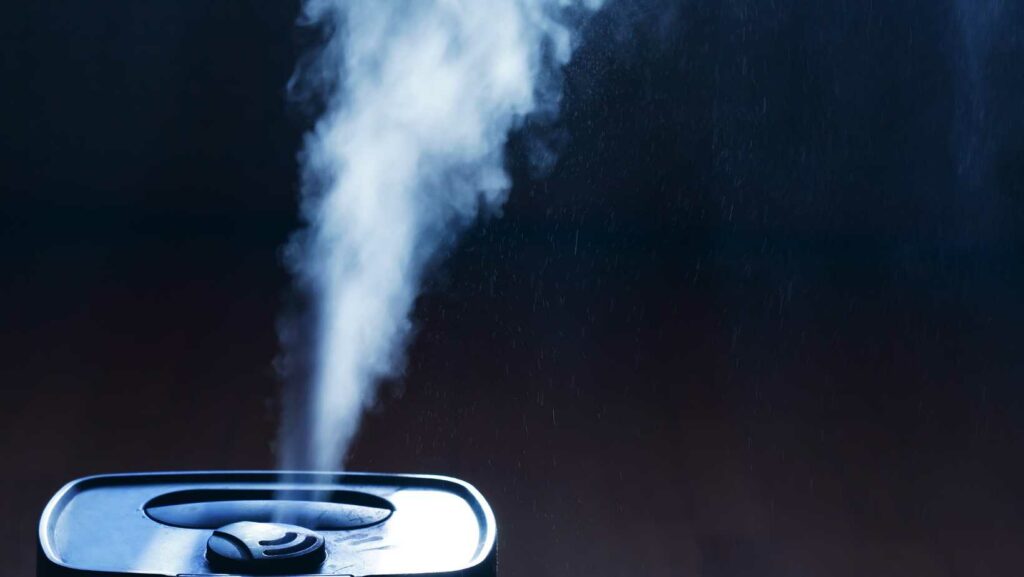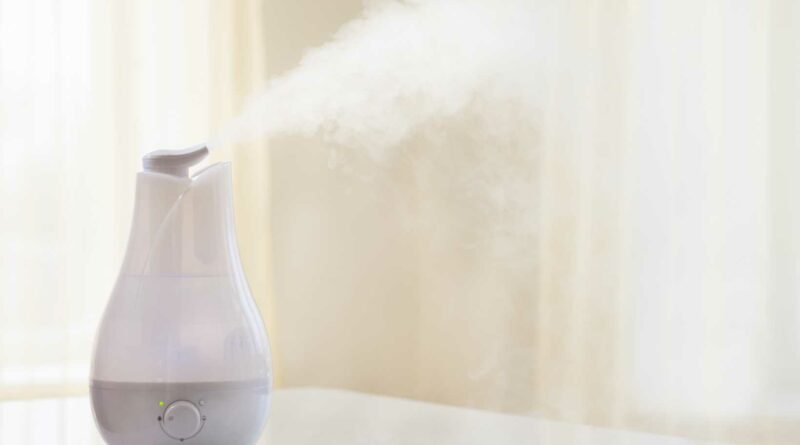Different Types of Humidifiers
Central Humidifiers
Central humidifiers are built into your home’s HVAC system and circulate humidity throughout your entire house. This is the most effective type of humidifier because it treats the air in your entire home evenly. Central humidifiers are a great choice for people who have allergies or respiratory problems because they can help to relieve congestion and dryness.
Pros
There are several types of humidifiers on the market, each with different features and benefits. It’s important to choose the right type of humidifier for your home and needs in order to get the most benefit from it.
Central humidifiers are whole-house units that are installed as part of your HVAC system. These units are the most expensive type of humidifier, but they are also the most effective. Central humidifiers can maintain a constant level of humidity throughout your entire home, and they don’t require regular maintenance like other types of humidifiers.
Cons
There are several types of humidifiers, each with individual advantages and disadvantages:
- Wick humidifiers are the most basic type of humidifier. A wick filter is soaked in water and then evaporates the water into the air. Wick humidifiers are generally inexpensive, but they require regular cleaning to prevent the growth of mold and bacteria.
- Ultrasonic humidifiers use high-frequency sound vibrations to generate a fine mist that is released into the air. These units are very quiet and can be used with essential oils to improve the scent of a room, but they are more expensive than other types of humidifiers.
- Evaporative humidifiers use a fan to force air through a wet wick filter, which increases the humidity in a room. These units are very efficient at adding moisture to the air, but they can be loud and require regular filter changes.
- Steam vaporizers heat water to create steam, which is then released into the air. These units provide a consistently high level of humidity, but they can be dangerous if they are not used properly.
Portable Humidifiers
A humidifier is a device that increases the humidity of a space. There are many different types of humidifiers, but portable humidifiers are the most common. They are small and can be moved from room to room, making them convenient for use in small spaces. Portable humidifiers are often used in offices, bedrooms, and nurseries.
Pros
A portable humidifier can be a great investment for your health, especially if you live in a dry climate or suffer from conditions like allergies or Asthma. There are many different types of portable humidifiers on the market, and each has its own set of pros and cons. Here is a rundown of the most popular types of portable humidifiers to help you make the best decision for your needs.
1. Central Humidifier
2. Console Humidifier
3. Impeller Humidifier
4. Evaporative Humidifier
5. Ultrasonic Humidifier
6. Nebulizing Humidifier
7. Cool Mist Humidifier

Cons
Evaporative humidifiers are great for small spaces and can be very effective, but they do have a few potential drawbacks. One is that they require frequent cleaning to prevent the growth of mold and bacteria, and the wick filters can be expensive to replace. Another is that they can be noisy, especially if the water reservoir is low. Finally, evaporative humidifiers can exacerbate allergies and respiratory problems in some people.
Whole-House Humidifiers
A whole-house humidifier is a type of humidifier that is installed as part of your home’s HVAC system. A whole-house humidifier can be integrated into your furnace or ductwork and is designed to work with your HVAC system to maintain a comfortable level of humidity in your home.
Pros
Whole-house humidifiers are beneficial for a number of reasons. They help improve the quality of indoor air, making it healthier for people to breathe. Additionally, they can help protect your home from damage by reducing the amount of static electricity in the air and by preventing cracking and peeling of paint and wallpaper. Additionally, whole-house humidifiers can make your home more comfortable to be in by alleviating dry skin, nosebleeds, and sore throats.
Cons
The main con of using a humidifier is the potential for increasing the growth of mold, mildew, and dust mites in your home. These contaminants can cause respiratory problems, allergic reactions, and other health problems. It is important to clean your humidifier regularly to prevent the growth of these contaminants. Another potential problem with humidifiers is that they can increase the risk of electrical shocks. If you have young children or pets in your home, you will need to be extra careful to keep the humidifier out of their reach.
Ultrasonic Humidifiers
Ultrasonic humidifiers are one of the most popular types of humidifiers on the market. They use ultrasonic vibrations to create a fine mist of water that is dispersed into the air. This type of humidifier is very quiet and is ideal for small rooms.
Pros
Ultrasonic humidifiers are one type of humidifier that uses ultrasonic technology to create vibrations in water. These vibrations generate a fine mist that is released into the air. Ultrasonic humidifiers are growing in popularity because they are relatively quiet and can be used with essential oils to create a soothing, aromatherapy experience.
There are several pros to using ultrasonic humidifiers:
1. They can help relieve symptoms of dry air, such as nosebleeds, dry skin, and static electricity.
2. They can help improve sleep by keeping nasal passages moistened and making it easier to breathe.
3. They can help reduce snoring by keeping nasal passages moistened and preventing them from drying out overnight.
4. They can help purify the air by reducing dust, pollen, and other airborne irritants.
5. They can be used with essential oils to create a relaxing aromatherapy experience.

Cons
There are a few potential cons to take into consideration when using an ultrasonic humidifier. One is that these devices can be a breeding ground for mold and bacteria if not properly cleaned. It’s important to follow the manufacturer’s cleaning instructions to avoid this issue.
Another potential issue is that ultrasonic humidifiers can sometimes produce a white dust that can settle on surfaces in the home. This happens when the minerals in hard water are broken down into small particles and dispersed into the air along with the water vapor. While the dust is not harmful, it can be a nuisance. If you have hard water, you may want to consider using a demineralization filter with your humidifier to help reduce this problem.
Impeller Humidifiers
Impeller humidifiers create humidity by using a rotating disk that flings water onto a diffuser. The diffuser then breaks the water into tiny droplets which are dispersed into the air. These humidifiers are great for larger rooms because they can cover a large area.
Pros
If you are looking for a humidifier that will not only add moisture to the air, but also help to circulate it, then an impeller humidifier is a good choice. These humidifiers use a rotating disk to produce a stream of water that is then expelled into the air. The advantage of this type of humidifier is that it can cover a larger area than other types of humidifiers and it can do so more evenly. In addition, they tend to be less expensive than other types of humidifiers.
Cons
Although impeller humidifiers have many benefits, there are also a few downsides to consider. One of the biggest issues is that because these devices use moving parts, they can be quite noisy. If you’re looking for a humidifier to use in your bedroom at night, an impeller model might not be the best choice.
Another potential downside is that because of the way they work, impeller humidifiers can be a bit more difficult to clean than other types of humidifiers. It’s important to clean your humidifier frequently to prevent the growth of mold and bacteria, but if you have a busy schedule, an impeller model might not be the most convenient option.
Where to place humidifier in bedroom
The most important factor to consider when deciding where to place a humidifier in your bedroom is the size of the room. Smaller bedrooms will benefit from a portable humidifier that can be placed on a nightstand or dresser, while larger bedrooms may require a console humidifier that is placed on the floor. Another factor to consider is the type of humidifier you have. Some humidifiers are designed to be placed on the floor, while others must be placed on a higher surface such as a nightstand or dresser.
When placing your humidifier in your bedroom, it is important to keep it away from any drafts, cold air vents, or open windows. The ideal location for your humidifier will vary depending on the size and layout of your room, but it should generally be placed near the center of the room. If you have multiple rooms with drafty areas or cold air vents, you may need more than one humidifier to achieve optimal results.
